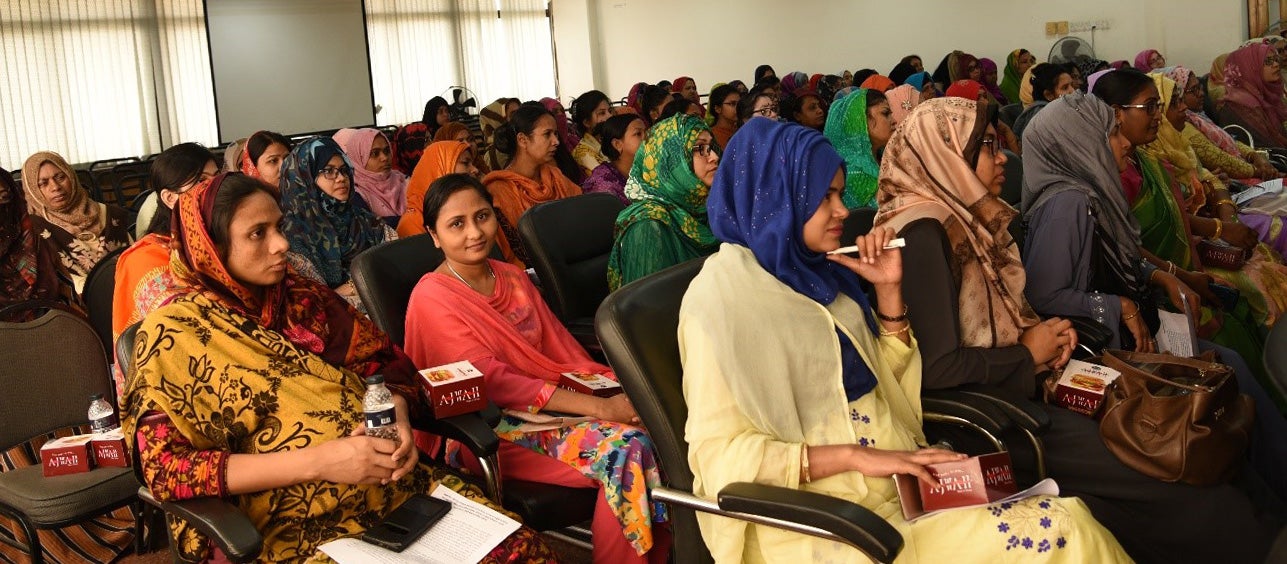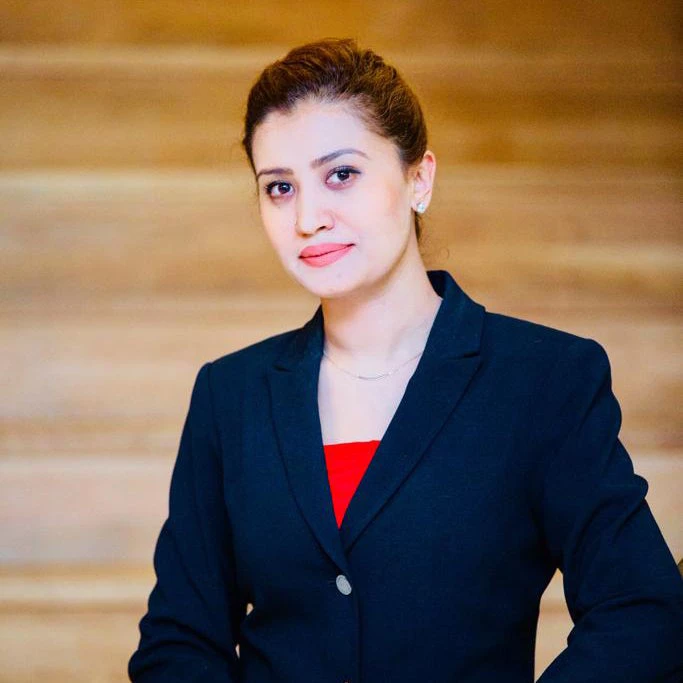 Female staff attending the Women’s Day event in Dhaka, March 2020. Photo: BREB
Female staff attending the Women’s Day event in Dhaka, March 2020. Photo: BREB
“WePOWER inspires my work every day,” says Ivy Nahar Tisha, an assistant engineer at the Bangladesh Rural Electrification Board (BREB), a government-owned power distribution utility. “After joining it, I started encouraging my female colleagues to expand their horizons and explore opportunities to learn, grow, and deliver results.”
Last year, Tisha was chosen to represent BREB at WePOWER’s conference in Nepal and its Second Partnership Forum in Manila. Since then, in partnership with WePOWER, she has worked to identify opportunities to develop and retain BREB’s female workforce. This included hosting workshops on WePOWER and on initiatives at BREB to increase women’s participation in management and leadership roles.
Tisha also helped establish a daycare center at BREB’s headquarters- which several of its subsidiary rural electricity cooperatives are adopting too- and participated in seminars organized by Bangladesh’s Institute of Electrical and Electronics Engineers.
WePOWER aims to increase opportunities for women and encourage girls to enroll in science, technology, engineering, and math (STEM) education.
BREB has expanded multifold recently to realize the government’s vision of providing electricity to 100 percent of Bangladesh’s rural population by 2021. To meet the ever-increasing demands of network expansion, upgrade, maintenance, and modernization, along with male engineers, BREB needs to utilize its female workforce better.
Bangladesh has made impressive progress in female labor force participation. Though it outperforms other South Asian countries, its national rate of 36 percent is still considered too low, and female labor face participation has fallen recently. The World Bank continues to work toward the economic empowerment of women in Bangladesh.
BREB, which serves 28 million consumers and benefits almost all of rural Bangladesh, employs some 30,000 people. Around 5,000 female staff work at its subsidiaries- nine of them have female deputy general managers. Additionally, BREB has reserved the post of billing assistants for women.
Enhancing job opportunities for female engineers is a priority for BREB’s leadership. But unfortunately, like most utility companies in South Asia, the ratio of female staff at BREB’s headquarters is less than 10 percent, and participation in engineering positions is even lower.
On Women’s Day in March, BREB’s chairman, Major General Moin Uddin (Rtd.), shared that in partnership with WePOWER, BREB will work to achieve three goals:
- Empower women in the workforce by adopting good practices and policies from leading utilities in South Asia.
- Provide training and learning opportunities for female staff to enhance their technical and managerial skills.
- Create a favorable environment and introduce new initiatives for BREB’s women workforce.

BREB supports the participation of women employees in all technical assignments and capacity building opportunities
To this end, BREB plans to collaborate with WePOWER’s partners in Bangladesh. It will arrange awareness seminars and site visits about its operations, planning and design for female engineering students. Recently, BREB established an internship program focused on specific components of the electricity distribution system for seven female electrical engineering graduates.
At the institutional and policy level, BREB supports the participation of women employees in all technical assignments and capacity building opportunities. Female employees are encouraged to express their needs and suggestions in quarterly staff meetings.
Since BREB joined the WePOWER platform, the participation of female employees has increased by 10 percent in committees such as recruitment, pension and benefits, among others. As BREB expects to hire more qualified female professionals and is committed to investing in its female employees, participation should grow.
Tisha is delighted to see these positive developments and her colleagues feel encouraged and empowered. “I am so proud of the incredible support that my institution is providing to advance the professional development and careers of its female employees,” she says. “My colleagues and I feel encouraged and empowered by the opportunity to serve our country – a bright and shinning Bangladesh.”
WePOWER is supported by the World Bank’s South Asia Gender and Energy Facility (SAGE) with funding from the South Asia Regional Trade Facilitation Program and Energy Sector Management Assistance Program. Follow WePOWER by subscribing to its quarterly newsletter.



Join the Conversation